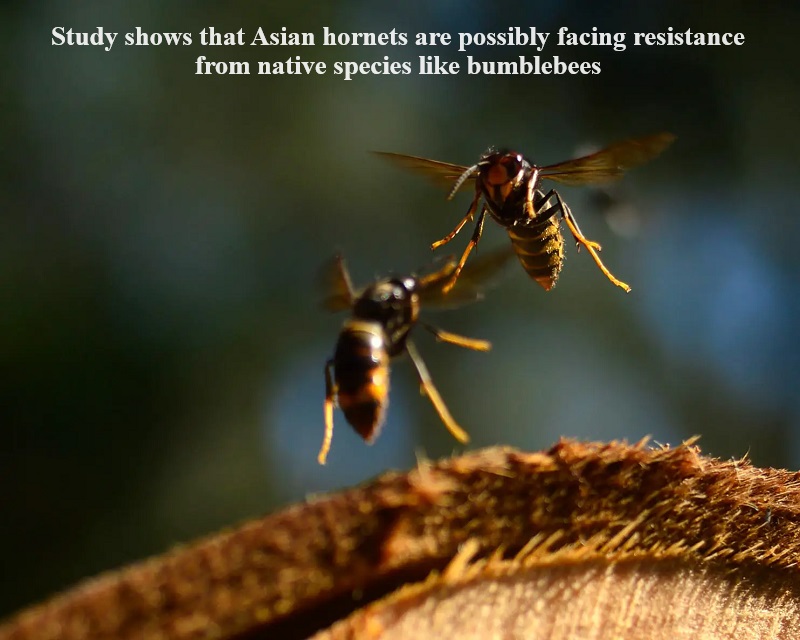
Asian hornets, also known as yellow-legged hornets, have infiltrated significant portions of mainland Europe and parts of East Asia. However, recent research indicates that they may be encountering resistance from native species, particularly bumblebees.
New findings reveal that bumblebees have developed a highly effective strategy for defending against Asian hornets. This study, led by a British university and published in the journal Communications Biology, comes at a time when the UK and continental Europe have witnessed record levels of Asian hornet activity, posing risks to bees and prompting extensive control efforts.
So, how do bumblebees fend off these hornets? Researchers from the University of Exeter observed that when under attack, buff-tailed bumblebees deliberately drop to the ground, taking the hornets down with them. This maneuver causes the hornet to either lose its grip on the bee or engage in a physical struggle until it gives up.
The study documented over 120 such interactions, with bumblebees emerging victorious in each case. However, despite their apparent success in fending off attacks, researchers discovered that bumblebee colonies in areas with high Asian hornet populations experienced reduced growth rates. This suggests that the hornets, even when unable to breach the colonies, have a detrimental impact on these pollinators.
Thomas O’Shea-Wheller from Exeter’s Environment and Sustainability Institute noted, “Asian hornets prey on a wide range of insects, including honeybees, but little is known about their impact on other pollinators.”
In these confrontations, the hornets employ a tactic called “hawking,” where they hover outside the colony and target returning foragers in flight. Interestingly, despite using the same approach against both honeybees and bumblebees, they are “entirely unsuccessful” when dealing with bumblebees. The study suggests that the defensive response of bumblebees appears to be more successful than that of honeybees.
O’Shea-Wheller also pointed out that hornets attack bumblebees of various sizes, including some larger than themselves. He explained, “They are very persistent and generalist predators, so these attacks may still be worthwhile despite the high failure rate, as long as they sometimes get a kill.”
To conduct this study, researchers placed reared bumblebee colonies in 12 locations across the Spanish province of Pontevedra, where Asian hornet densities varied. The colonies were weighed every two days as a measure of their growth. The researchers observed that colonies in areas with higher Asian hornet densities exhibited slower growth rates. O’Shea-Wheller mentioned that the exact reason for this phenomenon remains uncertain, suggesting that external factors might favor Asian hornets while posing challenges to bumblebees.

Post Your Comments